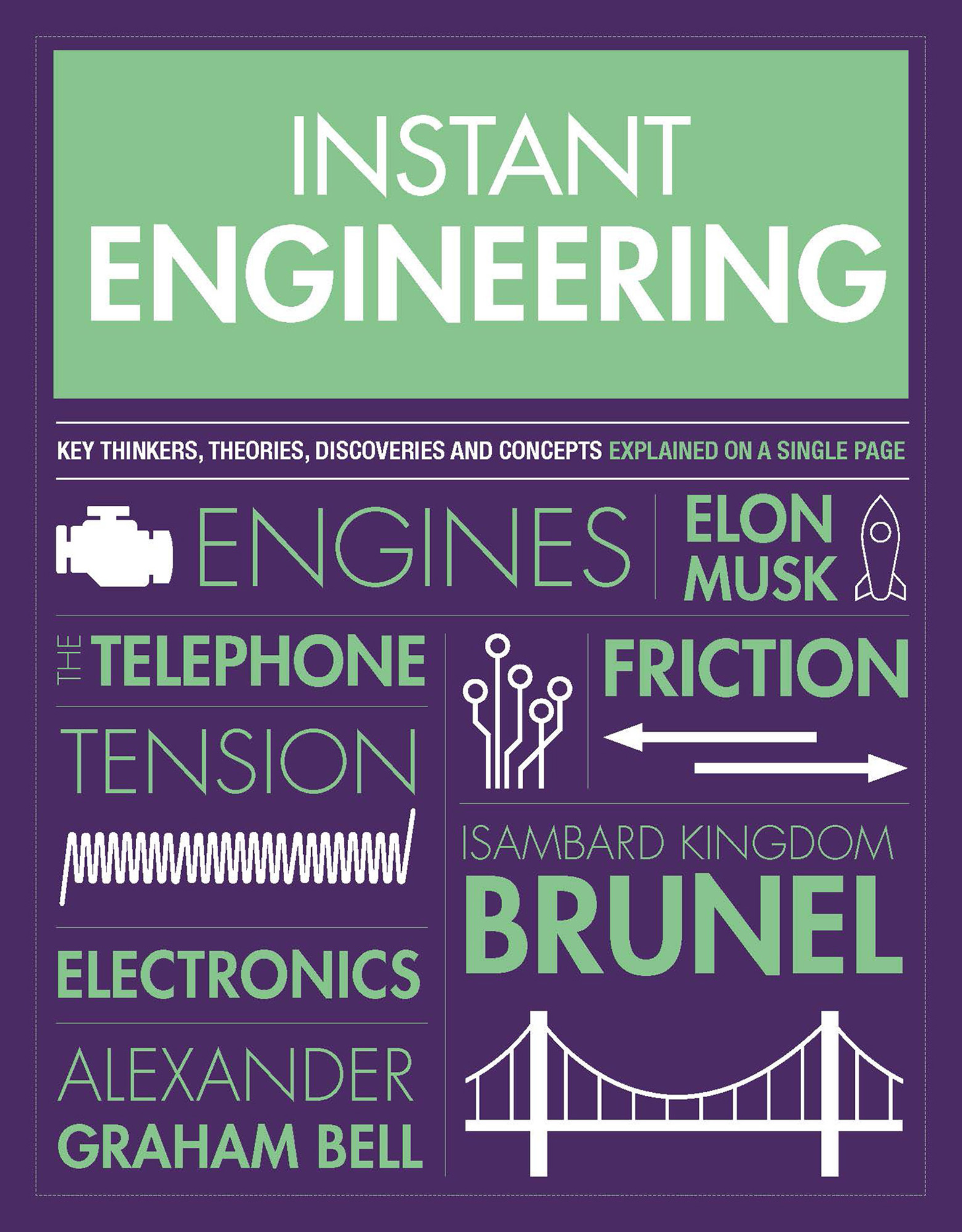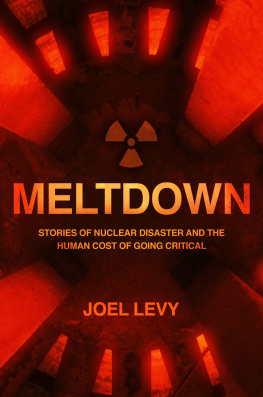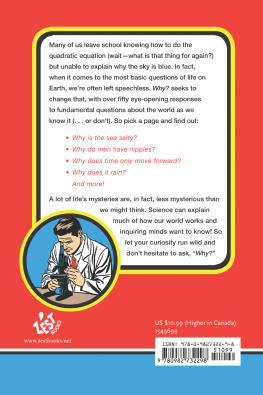Joel Levy - Instant Engineering
Here you can read online Joel Levy - Instant Engineering full text of the book (entire story) in english for free. Download pdf and epub, get meaning, cover and reviews about this ebook. year: 2020, publisher: Portable Press, genre: Romance novel. Description of the work, (preface) as well as reviews are available. Best literature library LitArk.com created for fans of good reading and offers a wide selection of genres:
Romance novel
Science fiction
Adventure
Detective
Science
History
Home and family
Prose
Art
Politics
Computer
Non-fiction
Religion
Business
Children
Humor
Choose a favorite category and find really read worthwhile books. Enjoy immersion in the world of imagination, feel the emotions of the characters or learn something new for yourself, make an fascinating discovery.

- Book:Instant Engineering
- Author:
- Publisher:Portable Press
- Genre:
- Year:2020
- Rating:5 / 5
- Favourites:Add to favourites
- Your mark:
- 100
- 1
- 2
- 3
- 4
- 5
Instant Engineering: summary, description and annotation
We offer to read an annotation, description, summary or preface (depends on what the author of the book "Instant Engineering" wrote himself). If you haven't found the necessary information about the book — write in the comments, we will try to find it.
Instant Engineering — read online for free the complete book (whole text) full work
Below is the text of the book, divided by pages. System saving the place of the last page read, allows you to conveniently read the book "Instant Engineering" online for free, without having to search again every time where you left off. Put a bookmark, and you can go to the page where you finished reading at any time.
Font size:
Interval:
Bookmark:



Portable Press
An imprint of Printers Row Publishing Group
10350 Barnes Canyon Road, Suite 100, San Diego, CA 92121
Copyright 2019 Welbeck Non-fiction Limited
All rights reserved. No part of this publication may be reproduced, distributed, or transmitted in any form or by any means, including photocopying, recording, or other electronic or mechanical methods, without the prior written permission of the publisher, except in the case of brief quotations embodied in critical reviews and certain other noncommercial uses permitted by copyright law.
Printers Row Publishing Group is a division of Readerlink Distribution Services, LLC.
Portable Press is a registered trademark of Readerlink Distribution Services, LLC.
Correspondence regarding the content of this book should be addressed to Portable Press, Editorial Department, at the above address. Author and illustration inquiries should be addressed to Welbeck Publishing Group, 2022 Mortimer St, London W1T 3JW.
Portable Press
Publisher: Peter Norton
Associate Publisher: Ana Parker
Editor: April Graham Farr
Senior Product Manager: Kathryn C. Dalby
Produced by Welbeck Non-fiction Limited
eBook ISBN: 978-1-64517-270-3
eBook Edition: August 2020
Note: All page numbers for image credits correspond to pages in the printed book.
All illustrations provided by Noun Project with the exception of Caramelina/Shutterstock

Today, engineering is defined as the application of scientific principles to practical purposes, and specifically to designing and developing systems, processes, structures, and machines to use the resources of nature to serve the needs of humankind.
The origins of engineering, however, lie not in science but in the down-to-earth, hands-on experience of resourceful individuals, making and building, learning what worked, and developing a body of practical knowledge.
The word engineer derives from the Latin root ingenerare, to create: the same root as ingenious. The first engineers were thus ingenious people, and the products of their ingenuity were engines; specifically, engines of war, for the origins of engineering as a profession and field lie in the military. Military engineers were called upon to design and build fortifications and the means to overcome them; weapons of war, especially large and complex ones such as catapults; and the infrastructure relied upon by armies and navies, from roads and bridges to get armies moving, to docks where ships could be constructed, to mines to bring down city walls. Many of these pursuits had obvious civil applications, and the development of civilization went hand in hand with the development of civil engineering: the building of canals and bridges, the digging of mines and quarries, and the construction of palaces and roads.
In ancient Greece, Rome, India, and China, a parallel tradition emerged of ingenious devices, artifices, and contraptions: machines. This tradition, known as mechanics, had important philosophical or academic aspects, but it was characterized by its practical nature, so that mechanics were defined, by themselves and others, in opposition to theoretical pursuits such as philosophy and science. Although today mathematics and science are central and crucial to engineering, historically many engineers distrusted this theoretical side. For those trained by apprenticeship, not in a school or university, and in America, for instance, this remained the case until as late as the mid-nineteenth century.
Elsewhere, however, a more rigorous conceptual and professional approach developed, and it was military engineering that once again was leading the way. The advent of gunpowder weapons increasingly demanded that the military engineer be able to apply scientific principles and mathematical precision, and in the early eighteenth century the powerful and advanced French state had created a school of military engineering to oversee artillery and artillery-resistant fortifications, and a school of civil engineering to build the roads, bridges, and canals needed for an effective military. British and American engineering developed more in the commercial and private sphere, focusing on industrial processes and machines, but as these became more and more advanced and specialized, it became more and more important to apply scientific principles. Mechanical and agricultural engineering emerged as branches of engineering coequal to military and civil, and the march of technology and science would go on to add more branches to the engineering tree. Electrical engineering emerged in the nineteenth century, primarily driven by the telegraph industry. Chemical engineering arrived in the same century, while the twentieth century saw the development of nuclear, biological, space, and computer engineering. New fields continue to emerge, including genetic, geo-, and nano-engineering. Today engineering is arguably the preeminent field in both science and technology; the one with the greatest impact on humanity, from day-to-day life to the global economy, from the most mundane activities to the fate of the planet.

The way this book is arranged loosely mirrors the organization of engineering as a whole, with sections exploring the most important branches of engineering, including civil, biological, transport, military and aerospace, electrical, and mechanical. In addition, there are overarching or underlying concepts that do not fit within these fields, and some of these are treated in the first section. Stephen Hawking was once warned by his publisher that each equation he included in his book would halve his readership. With this dictum in mind, Instant Engineering mostly avoids introducing equations, or indeed any mathematics. But readers should be mindful that mathematics is the basic language of engineering, and that without the complex calculations of the engineer none of the immense edifice of modern engineering would function: bridges would collapse, mobile phones would not ring, laptops would overheat, and planes would not fly. Equally important are the scientific principles that underlie so much of engineering, and from these the book does not shy. In these pages you will meet the laws of thermodynamics, motion, conservation of energy, relativity, and many more besides, but all are explained and/or evoked in simple, accessible terms that help to provide the reader with a deeper understanding of essential concepts and principles of engineering. Concepts and jargon are always defined or explained when introduced, and, in addition, a glossary at the end of the book provides brief definitions of key concepts and engineering terms.
Within each section, entries are arranged in more or less chronological order, and a timeline at the end of the book attempts to provide an overview of the chronology of the contents, although such an arrangement begs many questions. Even scientific and technological discoveries and advances can often not be pinned down to a particular time or person, and while engineering frequently overlaps with science and technology, it is even less of a clear-cut and individual pursuit. Definitively pinpointing the origins of inventions such as roads or domes is clearly impossible and indeed, as with many aspects of engineering, such concepts reveal the deep roots of engineering as a practice that stretches back to the origins of humanity itself. Defining features of our hominid lineage include tool use and tool making, the ability to shape and reshape our environment and to adapt nature to our priorities, rather than the other way around. These are key elements of engineering, and so in some ways we can consider engineering to be a core human competence: a major part of what it means to be human.
Font size:
Interval:
Bookmark:
Similar books «Instant Engineering»
Look at similar books to Instant Engineering. We have selected literature similar in name and meaning in the hope of providing readers with more options to find new, interesting, not yet read works.
Discussion, reviews of the book Instant Engineering and just readers' own opinions. Leave your comments, write what you think about the work, its meaning or the main characters. Specify what exactly you liked and what you didn't like, and why you think so.









